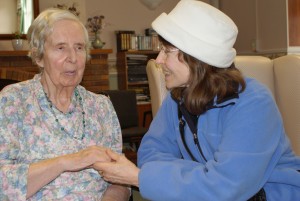
Last year, twice as many women (41, 283,) died from dementia than men (20,403). Heart disease was still the biggest cause of death for men last year. But this doesn’t mean that women are more prone to develop dementia than men: it’s just that women live longer than men and the incidence of dementia rises with age. And an encouraging note before we go on – the incidence of dementia (that is new cases) has dropped by 20% over the past two decades in developed countries, mainly among men. See the report by Newcastle University listed below.
The best ways of protecting against dementia are universally agreed. They are – a healthy diet; exercise, don’t smoke, get enough sleep, deal with depression (it slows blood flow to the brain), be intellectually active, and stay socially connected.
There is some evidence that brain training programmes that increase the speed of reaction are good, but Professor Craig Ritchie, Professor of the Psychiatry of Ageing at Edinburgh University, says that brain stimulation, not brain training, is the key. [i] ‘Chatting, being socially interactive with friends and in a work environment is probably what lights up your brain more than anything else,’ he said.
But it doesn’t mean that it’s all downhill when you retire! Taking up new hobbies, interests and intellectual challenges do you more good than the things you have done all your life. ‘So, if you’ve done crosswords your whole life, learning to play the piano at 65 is going to have more benefit on your cognitive health than keeping doing things you have always done,’ Professor Craig adds. You could try learning Welsh – it’s so strange it would get all your neurons firing wildly!
Another study by researchers at the Alzheimer’s Disease Research Centre, Wisconsin, showed that people who worked in complex jobs involving other people were less likely to be among those developing dementia in later life. Which bodes particularly well for our care home managers!
What’s good for your heart is good for your brain

In addition, there’s evidence that what’s good for your heart is good for your brain. Exercise is the ‘magic pill’ here, say experts. Professor Carol Brayne (Cambridge) and others suggest the government should invest in exercise education and programmes which would be more effective than looking for pharmaceutical answers. The results of the 30 year Caerphilly Study (reported on this blog some months ago) prove the point. Men who followed four or five of the healthy behaviours during the 30 years experienced on average a 73% reduction in diabetes, a 67% reduction in vascular disease, a 35% reduction in cancer (attributable to non-smoking alone) and a 64% reduction in cognitive impairment and dementia.[ii]
Pray for this sadness
So there’s a good deal that you can do when it comes to avoiding dementia. But there’s something that you can do for another group of people with the saddest statistic of all. The most grievous fact recorded was that in the youngest age group, aged five to 19, the leading cause of death is suicide. How unbelievably sad that children with so much promise and potential ahead of them should find their lives so painful that the only way to deal with it is to end them. Do pray that God will intervene in these young lives, and give them hope.
http://www.ncl.ac.uk/press/news/2016/04/reductionindementiacases/
[i] http://www.dailymail.co.uk/health/article-3860096/Are-worried-dementia-Revealed-6-proven-ways-prevent-memory-loss-grow-older.html#ixzz4O6e5yQOT
[ii] https://en.wikipedia.org/wiki/Caerphilly_Heart_Disease_Study














